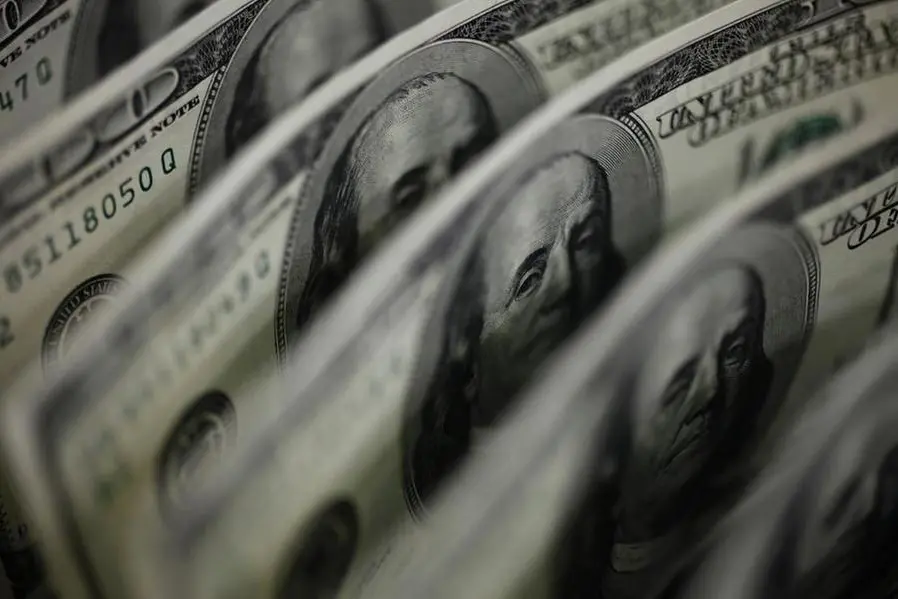PHOTO
TOKYO: Safe-haven currencies, including the dollar, eased on Thursday, pausing for breath after big gains the previous session as Wall Street stocks tumbled amid mounting concerns that aggressive tightening by the Federal Reserve and other global central banks could choke growth.
The dollar index, which tracks the greenback against six major peers, edged 0.05% lower to 103.74, after a 0.55% jump overnight that ended a three-day losing streak.
The yen slipped, with the dollar adding 0.21% to 128.495 yen after a 0.86% tumble on Wednesday.
The Swiss franc continued to strengthen, with the dollar losing a further 0.13% to 0.9869 franc, following a 0.6% slide.
The benchmark 10-year U.S. Treasury yield was steady around 2.89% in Tokyo trading after dropping from as high as 3.015% in the prior session.
Despite the pause in the safe haven rally, sentiment remained fragile with Asian stocks sliding and U.S. futures pointing lower, a day after a 4% drop for the S&P 500 and a 5% plunge for the Nasdaq.
Poor U.S. housing data on Wednesday added to slowdown concerns, and Fed Chair Jerome Powell had ratcheted up the hawkish rhetoric the previous day by saying the U.S. monetary authority would push interest rates as high as needed to stem a surge in inflation that he said threatened the foundation of the economy.
Powell's stance "makes it hard to achieve a 'soft landing' for the U.S. economy given the long lags between changes in monetary policy and changes in inflation," Joseph Capurso, a currency strategist at Commonwealth Bank of Australia in Sydney, wrote in a client note. "The darkening outlook for the U.S. economy supports the USD and safe-haven currencies."
The euro recovered some ground, adding 0.25% to $1.0489 after Wednesday's 0.84% slump.
The Aussie rose 0.14% to $0.6965 - shaking off a smaller-than-forecast increase in jobs for last month - but the currency had slumped 1.05% on Wednesday.
Sterling remained under pressure, trading little changed at $1.2343 after dropping 1.2% overnight as a surge in U.K. inflation to a 40-year record fostered worries for a sharp economic slowdown.
(Reporting by Kevin Buckland)





















